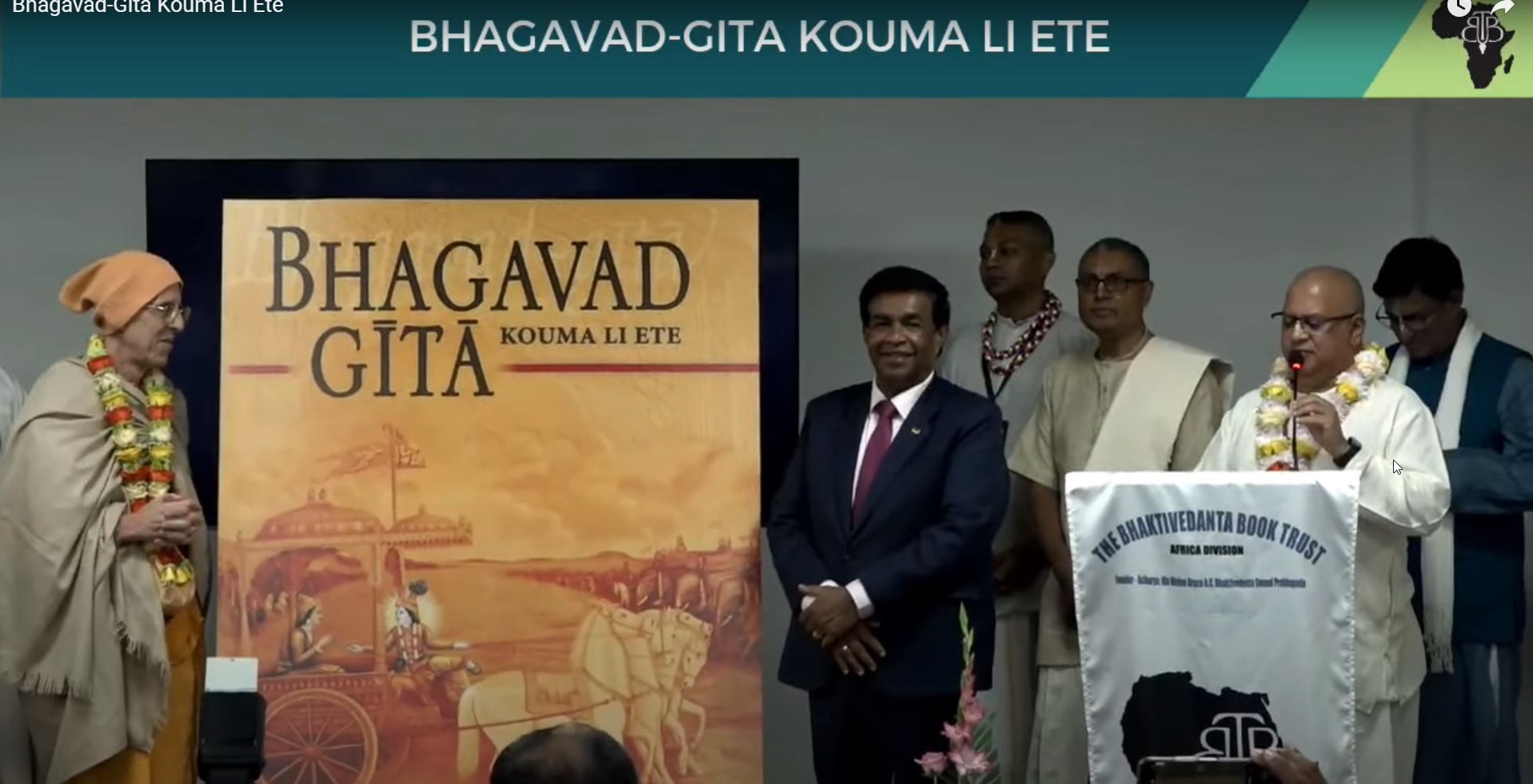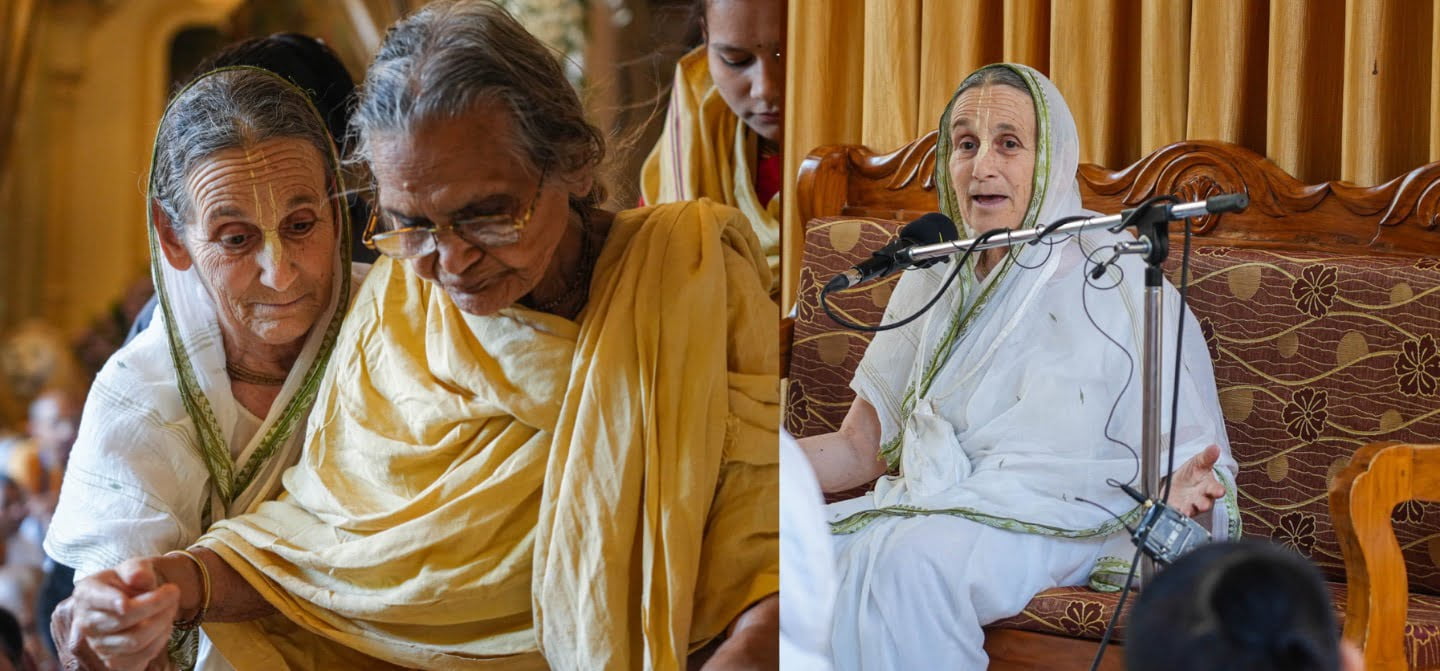Health Care Reform and the “V” Word
By Sesa Dasa | Oct 01, 2009

Kudos to Michael Pollan. His September 9, 2009 Op-Ed contribution to the New York Times, Big Food vs. Big Insurances, raises unspoken, yet hard to ignore, issues in the US Health Care Reform debate. Pollan points out, “The American way of eating has become the elephant in the room in the debate over health care.”
According to the Centers for Disease Control and Prevention, three-quarters of health care spending now goes to treat “preventable chronic diseases.” Not all of these diseases are linked to diet — there’s smoking, for instance — but many, if not most, of them are:
We’re spending $147 billion to treat obesity, $116 billion to treat diabetes, and hundreds of billions more to treat cardiovascular disease and the many types of cancer that have been linked to the so-called Western diet. One recent study estimated that 30 percent of the increase in health care spending over the past 20 years could be attributed to the soaring rate of obesity, a condition that now accounts for nearly a tenth of all spending on health care.
A certain degree of anticipation grew in my heart as I read through Pollan’s two page article. It all made good sense to me, preventable diseases – yes, obesity – yes, diabetes – yes. Then, quite abruptly the article ended, leaving me somewhat puzzled and disappointed. You see, I was waiting for the “V” word but it never manifested.
How could he ignore vegetarianism?! Pollan argues his point convincingly by focuses on the numbers, the costs to health care insurers and the politics of government and agribusiness. Yet, with the exceptions of couple of unelaborated references to soda, fast food, and fresh produce he too seems to avoid speaking about the actual elephant in the room. The “elephant” is what we eat.
“Let me read this thing again,” I thought, “maybe I missed something.” To my relief, I found that I had missed a key point in Pollan’s piece. My relief turned into enthusiasm when I realized what Pollan was actually doing. He wasn’t avoiding the elephant in the room; he was opening the door for me (and others) to specifically add the “V” word to the debate. We all have a role to play in health care reform. Such a major change in direction for a society like the US is not going to happen unless we all add our own special viewpoint to the debate. Yes, I will take this opportunity to follow Pollan’s lead by presenting numbers specifically linked to vegetarianism and health as opposed to the money and politics he focuses on.
In a recent study conducted by Susan E. Berkow and Dr. Neal D. Barnard of the Physicians Committee for Responsible Medicine reported at bio-medicine.org, the authors found that the body weight of both male and female vegetarians is, on average, 3 percent to 20 percent lower than that of meat eaters:
Obesity is one of the most pressing health problems in the United States and will soon become the country’s leading cause of preventable deaths,” says Deborah Wilson, M.D. writing for the Vegetarian Starter Kit, published by People for the Ethical Treatment of Animals. “Because vegetarian diets are the only diets that work for long-term weight loss, it’s no surprise that population studies show that meat-eaters have three times the obesity rate of vegetarians and nine times the obesity rate of vegans”¦Adopting a vegan diet won’t just help you slim down, it will also help you fight an array of ailments, including heart disease, cancer, diabetes, arthritis, and more.
In the July 2009 issue of its journal The American Dietetic Association (Volume 109, Issue 7, Pages 1266-1282) published its official position on Vegetarian diets:
It is the position of the American Dietetic Association that appropriately planned vegetarian diets, including total vegetarian or vegan diets, are healthful, nutritionally adequate, and may provide health benefits in the prevention and treatment of certain diseases. Well-planned vegetarian diets are appropriate for individuals during all stages of the life cycle, including pregnancy, lactation, infancy, childhood, and adolescence, and for athletes.
A vegetarian diet is defined as one that does not include meat (including fowl) or seafood, or products containing those foods.
The results of an evidence-based review showed that a vegetarian diet is associated with a lower risk of death from ischemic heart disease.Vegetarians also appear to have lower low-density lipoprotein cholesterol levels, lower blood pressure, and lower rates of hypertension and type 2 diabetes than nonvegetarians. Furthermore, vegetarians tend to have a lower body mass index and lower overall cancer rates. Features of a vegetarian diet that may reduce risk of chronic disease include lower intakes of saturated fat and cholesterol and higher intakes of fruits, vegetables, whole grains, nuts, soy products, fiber, and phytochemicals.
Clearly, there is a link between vegetarianism and better health, and better health translates into lower health care costs. Great, so with regard to health care reform, lower health care costs, going vegetarian is a platform on which everyone wins.
Still, a question lingers in my mind. Why did Pollan stop short of using the “V” word? Are there some who don’t win with regard to vegetarianism and health care? Perhaps Pollan was intimidated by those who don’t see a win. Vegetarians remember all too well how the meat industry jumped on Oprah Winfrey back in the 90’s when she questioned meat industry health and safety standards. Oprah could afford to fight the lawsuit, perhaps Pollan can’t. Faced with opposition from this powerful wing of the agribusinesses Pollan mentions, perhaps his strategy of opening the door for broader participation in the debate also includes bringing in more diverse voices to achieve more collective strength to combat a powerfully entrenched meat industry.
The health benefits derived from vegetarianism certainly go far beyond simply what we ingest. Both our external environment and internal environment, or consciousness, impact our physical health. This is a fact also recognized by nutritionists. Holly Alley, MS, RD, LD, Nutrition Specialist, Department of Food and Nutrition at the University of Georgia, College of Family and Consumer Sciences, Cooperative Extension Services summaries how these two environments contribute to good health (www.fcs.uga.edu):
People become vegetarians for many reasons. These may include religious reasons (Hindu, Moslem, Buddhists, Seventh Day Adventist), health, fad, economic, or moral [against the killing of animals] reasons”¦These health benefits found in vegetarians may not be solely due to diet. Lifestyle habits other than diet, such as exercise, religious practices, smoking, and alcohol can also influence health. The research does not always separate out whether it is the diet alone which makes the difference or whether these other lifestyle factors also play a part.
Who can deny that lifestyle factors do play a part in our health? Accepting that they do play a part in our health, then the voices of their advocates must be part of the debate. Arguments of concern from those who are vegetarians because of the devastating effects meat eating has on our global environment, arguments of passion from those who are vegetarians because of religious reasons, and arguments of sensitivity those who are vegetarians because of the terrible cruelty and violence inflicted upon animals must be added to the medical arguments on the benefits of vegetarianism. Only such a collective effort will fully expose the elephant in the room, and lead to improved health care for all Americans.
Gee, I feel better already.












